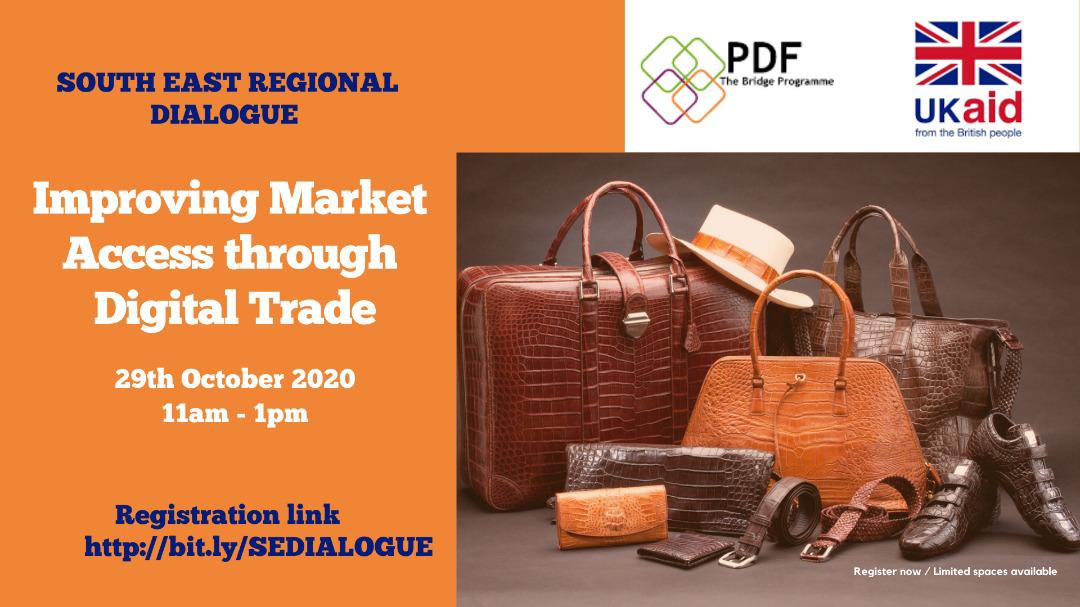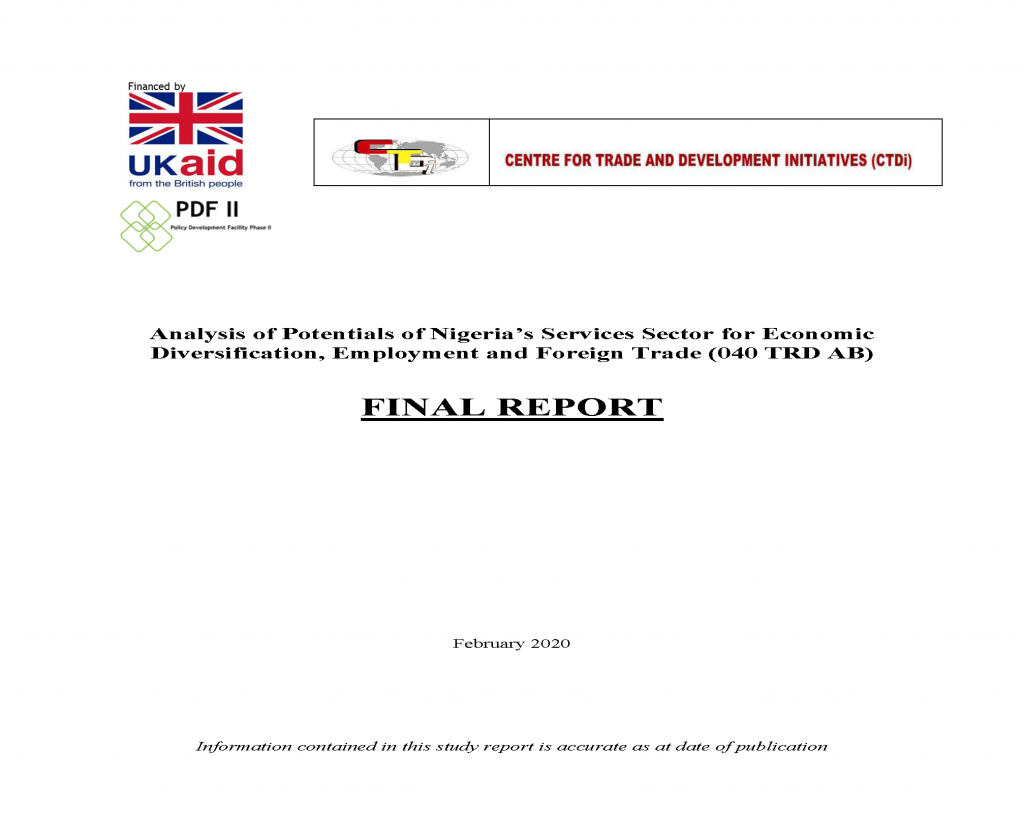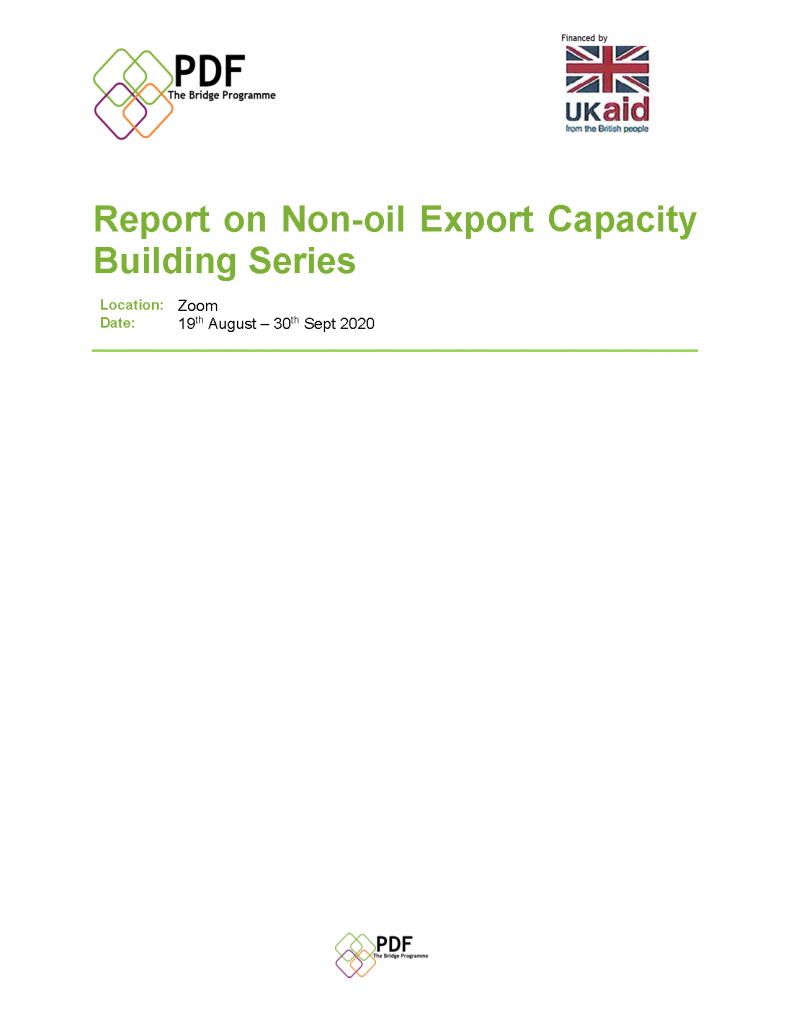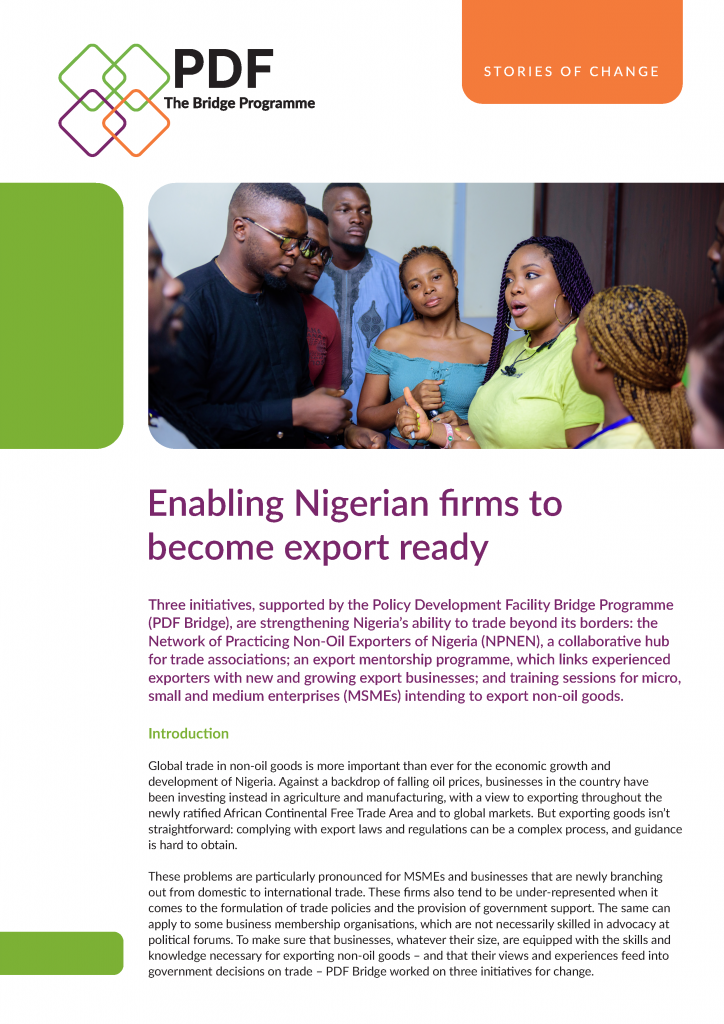Southeast Regional Dialogue

Associated resources
Africa’s contribution to global trade in services is little with slow growth despite rapid globalisation and liberalisation. The continent’s intra – African trade in services is also relatively little. Nigeria’s services sector contribution to its GDP is huge, representing 55.8 per cent in 2017. It recorded a growth rate of 1.83percent in 2018. Hence, the services sector possesses the immense potential to promote diversification, employment, and growth, even without a current holistic services sector policy. This study specifically mapped and profiled key services sectors; reviewed domestic regulations relating to services; estimated the current and future potentials for export, and provided associated recommendations.
The Trade Policy Work Stream started out by conducting a needs assessment to get direct feedback from export-oriented MSMEs, export-supporting government institutions, and export business service providers to ascertain the capacity gaps. The top 5 challenges highlighted by the respondents include lack of market linkages, lack of finance, lack of market intelligence, limited knowledge of destination country requirements, and Export documentation.
Respondents were further asked about what they would like to see if there is an opportunity for assistance with capacity building for export readiness and export market access. Each responded provided its top 3 areas of preference for capacity building. The findings from the overall assessment provided a guide on areas to address.
In response to their needs, TRD workstream designed a targeted capacity building for the non-oil export community of practice to address the knowledge and skill gaps through a 4-part Export Capacity Building (CB) Series.
Against a backdrop of falling oil prices, the Nigerian government has woken up to its economic vulnerability to oil-related disruptions. This underscores the need for diversification to non-oil exports. PDF Bridge supported the drive towards growing non-oil export by supporting under-represented non-oil exporters through three strands of work: strengthening Nigeria’s ability to trade beyond its borders through the Network of Practicing Non-Oil Exporters of Nigeria (NPNEN), an export mentorship programme, which links experienced exporters with new and growing export businesses; and training sessions for micro, small and medium-sized enterprises (MSMEs) intending to export non-oil goods were held on; Market Entry Strategies, Understanding export documentation, Raising Finance for Export, Branding, and packaging for export. In addition, Roundtables were held on;
- Addressing Barriers to Access to Foreign Markets – An analysis of Spices & Herbs, Textiles & Garments, and Leather Products;
- Analysis and Impact of Export Expansion Grant on Export Potential, Market Access and Export Competitiveness in Nigeria;
- Improving Market Access through Digital Trade and;
- Analysis of Potentials of Nigeria’s Services Sector for Economic Diversification, Employment and Foreign Trade;
- Diversification and Non-oil Export Opportunities for Nigeria States Post-COVID19 Study
The Policy Development Facility Bridge program (PDF Bridge) held a Trade Policy Roundtable to discuss the findings and recommendations from its recent study titled “Diversification and Non-oil Export Opportunities for Nigerian States Post-Covid19”.
The objectives of the policy roundtable were;
- To provide a forum for relevant stakeholders to learn about and discuss the findings from the Export Diversification study;
- Through discussions, generate recommendations on necessary actionable steps towards reforms, process restructuring, elimination of various challenges identified in the study, and implementation of the study recommendations.
Businesses that operate in a particular domain are expected to adhere to some rules and regulations. Here is a training material that covers some of these requirements. This does not take the place of legal advice.





